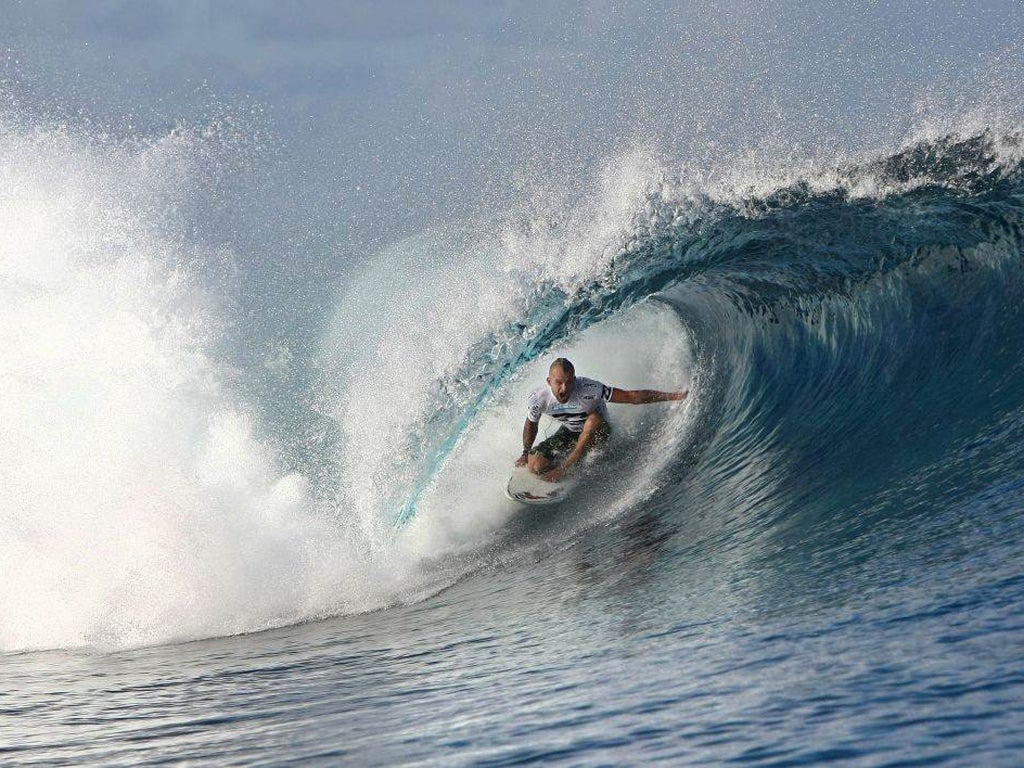Your support helps us to tell the story
From reproductive rights to climate change to Big Tech, The Independent is on the ground when the story is developing. Whether it's investigating the financials of Elon Musk's pro-Trump PAC or producing our latest documentary, 'The A Word', which shines a light on the American women fighting for reproductive rights, we know how important it is to parse out the facts from the messaging.
At such a critical moment in US history, we need reporters on the ground. Your donation allows us to keep sending journalists to speak to both sides of the story.
The Independent is trusted by Americans across the entire political spectrum. And unlike many other quality news outlets, we choose not to lock Americans out of our reporting and analysis with paywalls. We believe quality journalism should be available to everyone, paid for by those who can afford it.
Your support makes all the difference.You only have to watch Edison de Paula carve his way across one of the spectacular waves that wallop Oahu's shore to realise surfing isn't a laid-back sport. When the swells hit 30 feet, one wrong move can send you to a watery grave. At Pipeline, a break famous for its perfect "tubes," there have been 70 deaths since the 1960s. At nearby Sunset Beach, a man went missing, presumed dead, only last week.
From time to time, surfers also encounter serious danger on dry land. Especially if – like Mr de Paula – they were neither born nor raised in Hawaii, but instead grew up on the beaches of Brazil.
The curse of "localism", a universal feature of the surfing world, has reached boiling point on the North Shore, a small but spectacular piece of ocean-front regarded as the sport's Mecca because of its large, beautifully-formed waves.
Friction between territorial locals and outsiders is felt at the best of times. But in recent winters, the arrival of tribes of energetic young surfers from Brazil has sparked something approaching a racial war. Mr De Paula has seen Brazilians beaten to a pulp by Hawaiians for both relatively minor misdemeanours, such as "disrespecting" the wrong person, and more dangerous breaches of etiquette, such as attempting to catch the wrong wave. In ensuing disputes, cars have been vandalised, valuable surfboards snapped in two, and noses and teeth broken.
"A Brazilian guy might have made a mistake in the water, or been too aggressive. He may not, strictly, have done anything wrong, but it doesn't matter: he will get punished," Mr de Paula said.
The wider surfing community first became aware of the tensions at the 2007 Pipeline Masters contest, when Brazil's Neco Padaratz became involved in a fight with North Shore regular Sunny Garcia.
Fisticuffs began in the water. When they moved to dry land, scores of locals joined in. No one knows exactly how many fights have broken out since. Police don't keep a record and the locals have lost count. But, as another big wave season gets underway, dozens of YouTube videos and scores of eye-witness accounts bear witness to a creeping xenophobia invading paradise.
The Wolfpak, a vigilante group formed by angry young locals has recently been blamed for attacks on Brazilian surfers. Its leader, Kala Alexander, was asked recently how he might deal with "foreigners" who annoy him in the water.
He replied: "Maybe I'd paddle up to you, tell you to go in, or take off your leash [a cord used to attach a board to a surfer]. Later I'd find you, or a few of the other guys would, and you'd be taught a lesson."

Join our commenting forum
Join thought-provoking conversations, follow other Independent readers and see their replies
Comments